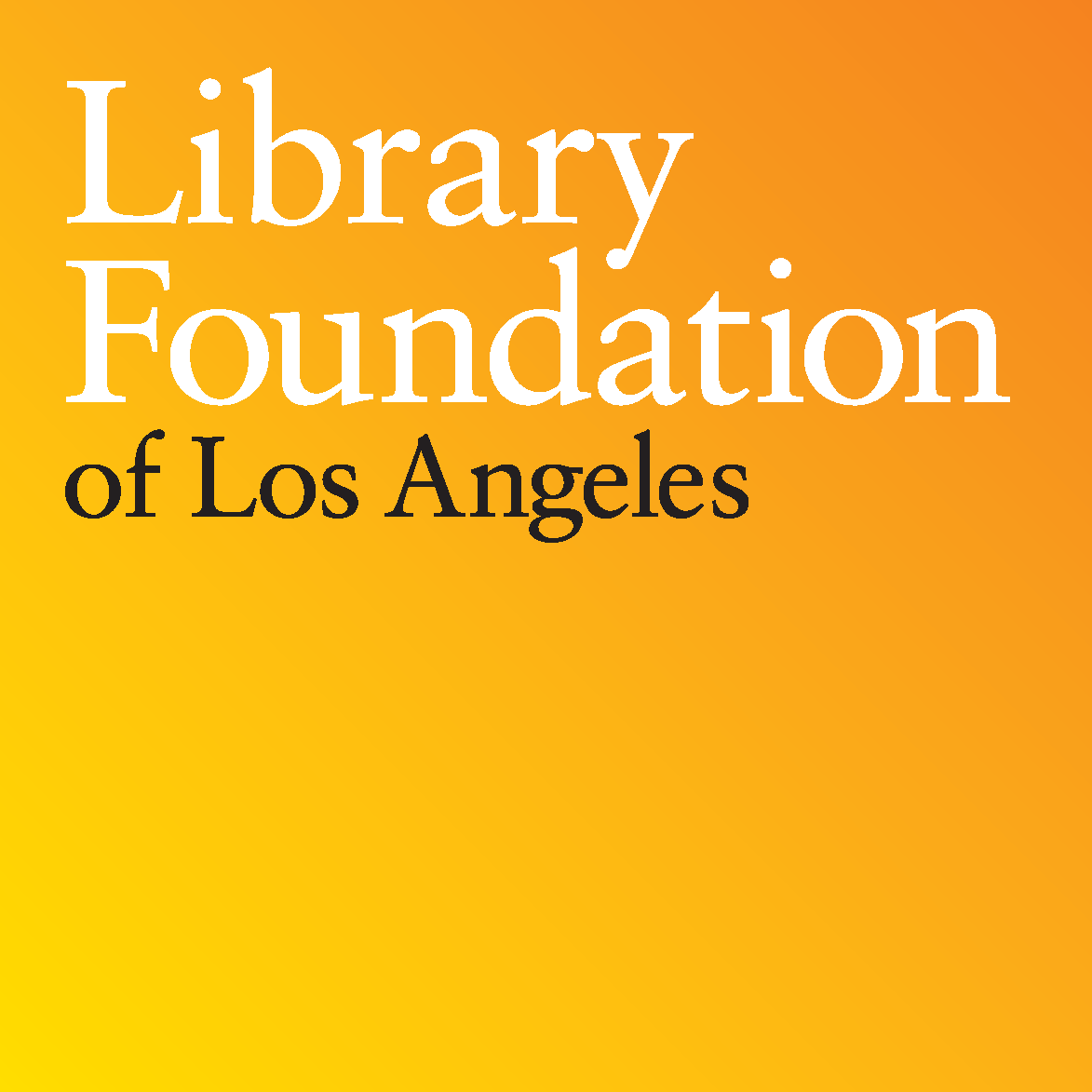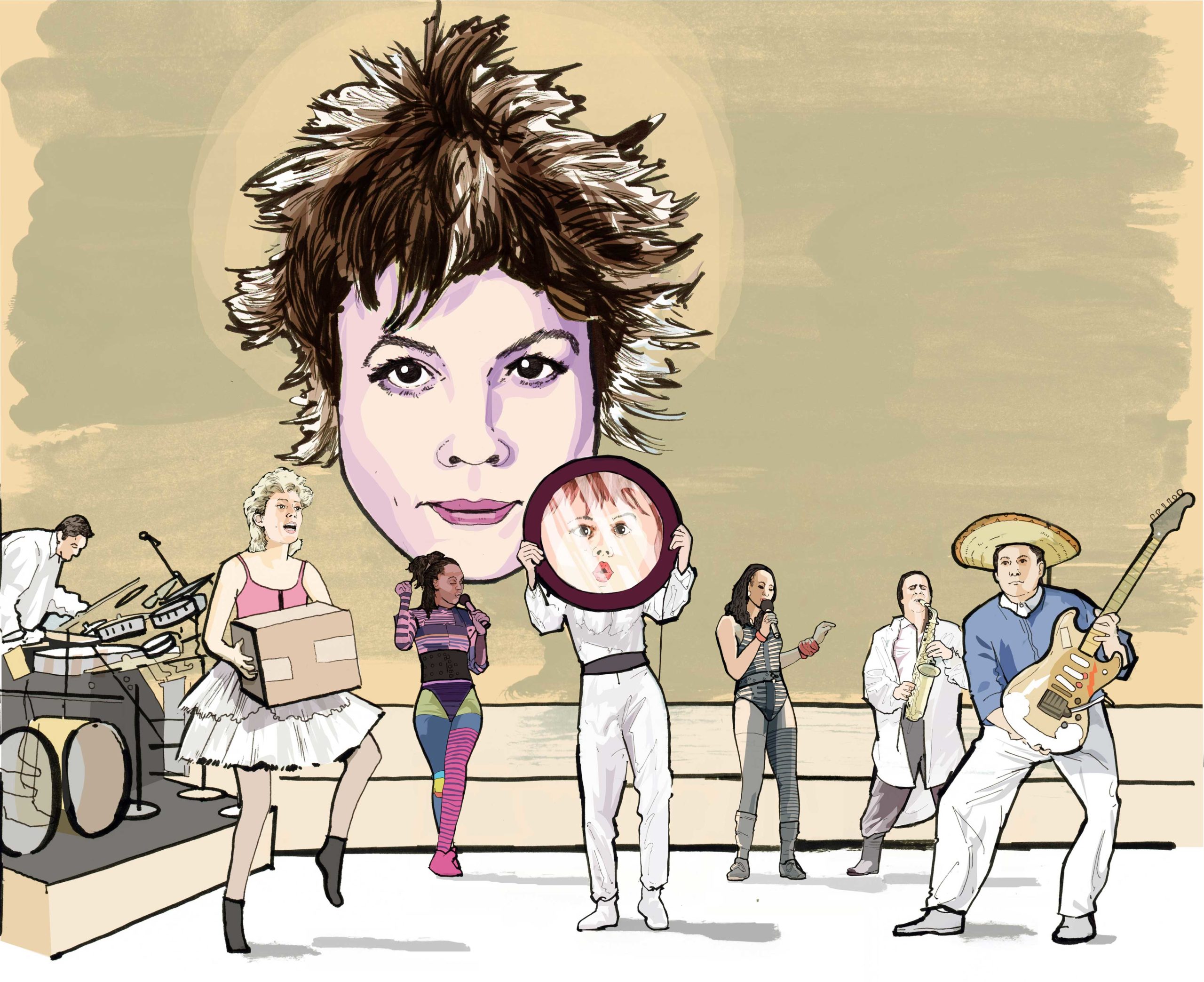“I think it’s useful to see the world not as things and people but as a series of approaches and options for ways to perceive them. Language is approximate—it is a complicated code,” writes Laurie Anderson. An icon of performance art and the indie-music world, Anderson has been inventing new approaches to perceiving the world for over 40 years. As a musician, performance artist, composer, fiction writer, and filmmaker, Anderson moves seamlessly between the fine arts, music, and all the new media in between. But regardless of the medium, Anderson’s storytelling has always been driven by language. Now in the first book of her full career to date, All The Things I Lost in the Flood, Anderson curates a comprehensive collection of her artwork—from an opera inspired by Moby Dick to installations addressing Guantanamo and the bombing of Baghdad—and offers an intimate understanding of her creative process.
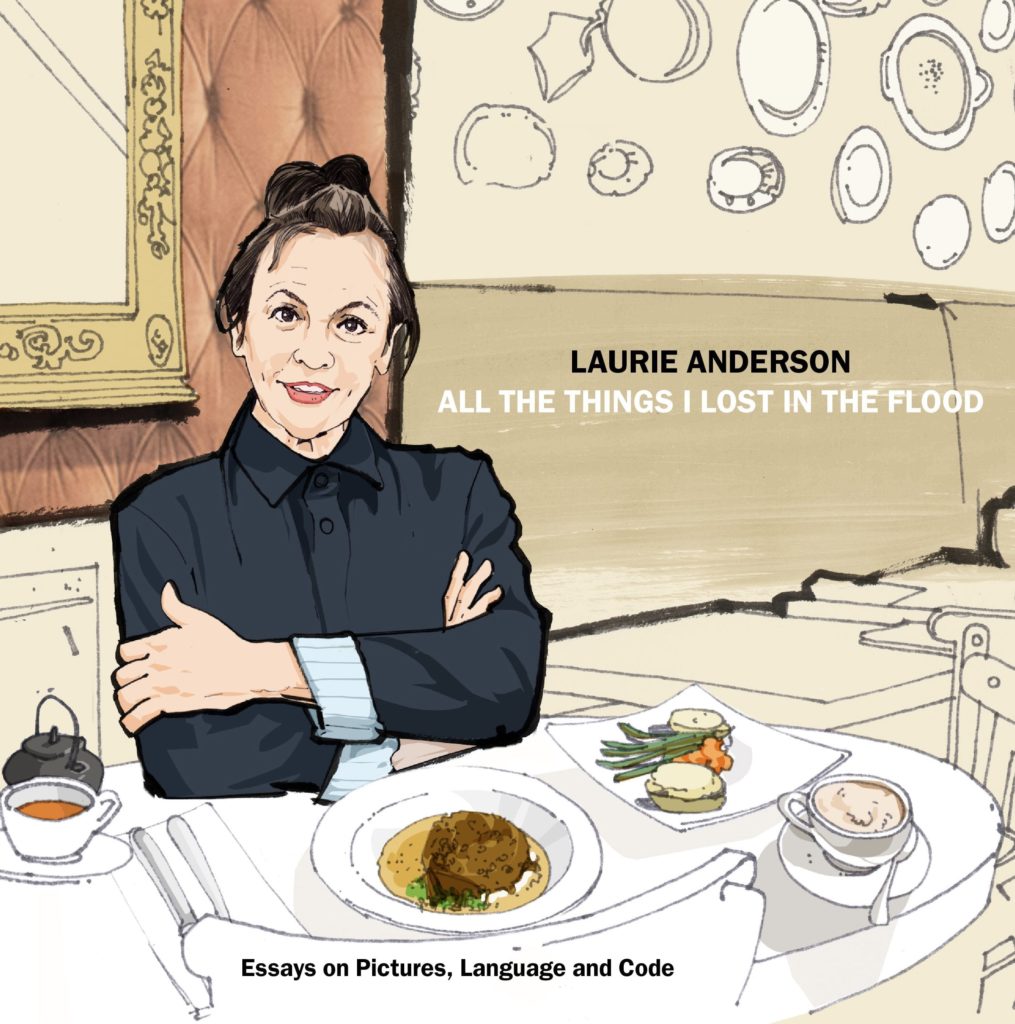
This spring ALOUD presents two dynamic programs with Anderson: on April 19 at Central Library, Anderson will discuss with award-winning writer Maggie Nelson her new book that traverses four decades of making groundbreaking art, then on April 20 at The Wallis, she will perform her west coast debut of a one-woman show that will, she said, “bring a book to life.” Before the legendary artist visits ALOUD, we asked Anderson about how books, politics, and the passing of time have shaped her storytelling.
As an artist you’ve pushed the boundaries of so many forms and disciplines and media—from experimental performance art to inventing new musical instruments and technology—usually working at the edge of the avant-garde. Writing a book is more mainstream by comparison—what made you want to publish this collection?
Anderson: I love books and treasure them. And it’s been a long time since I tried to put one together. I wanted to see if I could make something that still sounded like talking even though it ended up as print. Getting the sound of the voice into writing has always been a challenge. Plus, I wanted to make it conversational—to provoke, to suggest, to make something that didn’t wrap things up too neatly.
A lot of your work is in the performance realm, and you often refer to it as work-in-progress that evolves over time and changes with each new iteration. However, once a book goes to print, it is considered done. Did this idea of reaching a more final stopping point affect your creative process?
Anderson: Yes, you hit on the biggest downside of books for me. But I’m familiar with that finality from making records, films, and exhibitions. With this book there are many days when I wake up and think: Whoa! Why didn’t I include that (idea/story/picture/you name it)?
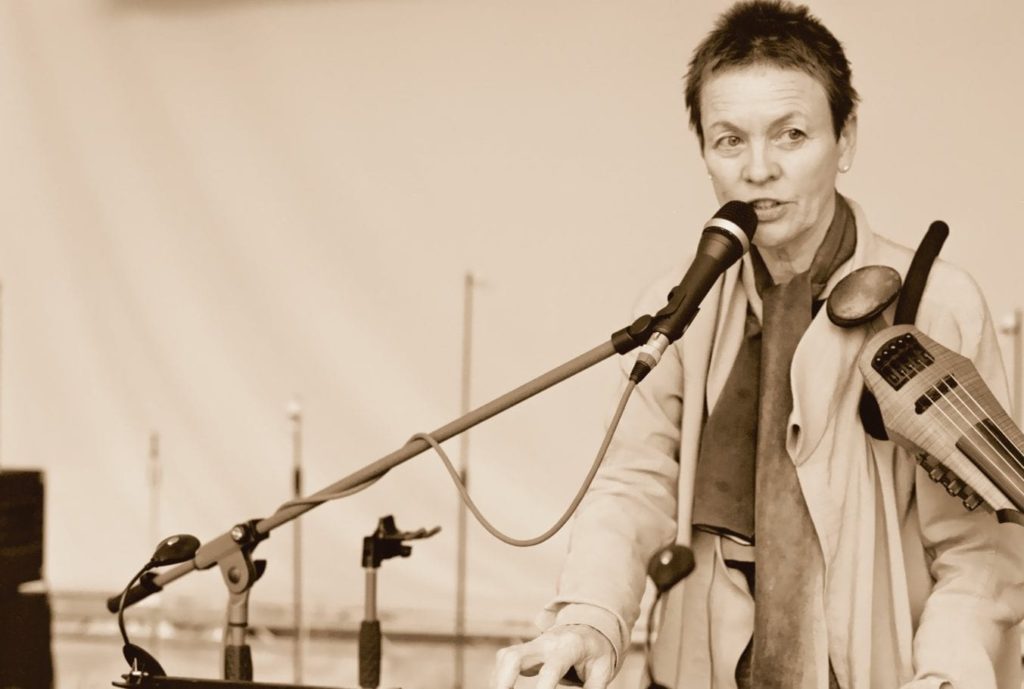
The stories in your new collection span a lifetime of making art. How did you select which stories to include—what memories or moments did you gravitate towards that felt essential to tell?
Anderson: I tried to stick to stories and how they affected and were affected by images; and so I tended to leave out lyrics for the most part and music almost completely. Since I’m known more as a musician than a visual artist I enjoyed the challenge. Also, with music it’s almost always better to play it than to write about it.
You’ve created political work through different historic moments, and today we are facing incredible challenges with the divisive political climate in our country. Why is storytelling important to you in the context of politics?
Anderson: The minute that politicians realized the power of stories—the story machine went into hyper-drive. You can set that date recently, or as far back as the mid-twentieth century, or as far back as the Norse myths. The stories that are being created, disseminated, analyzed, and promoted to achieve political ends these days are completely fascinating to me. Who’s writing them and who they’re addressed to is as crucial as the content.
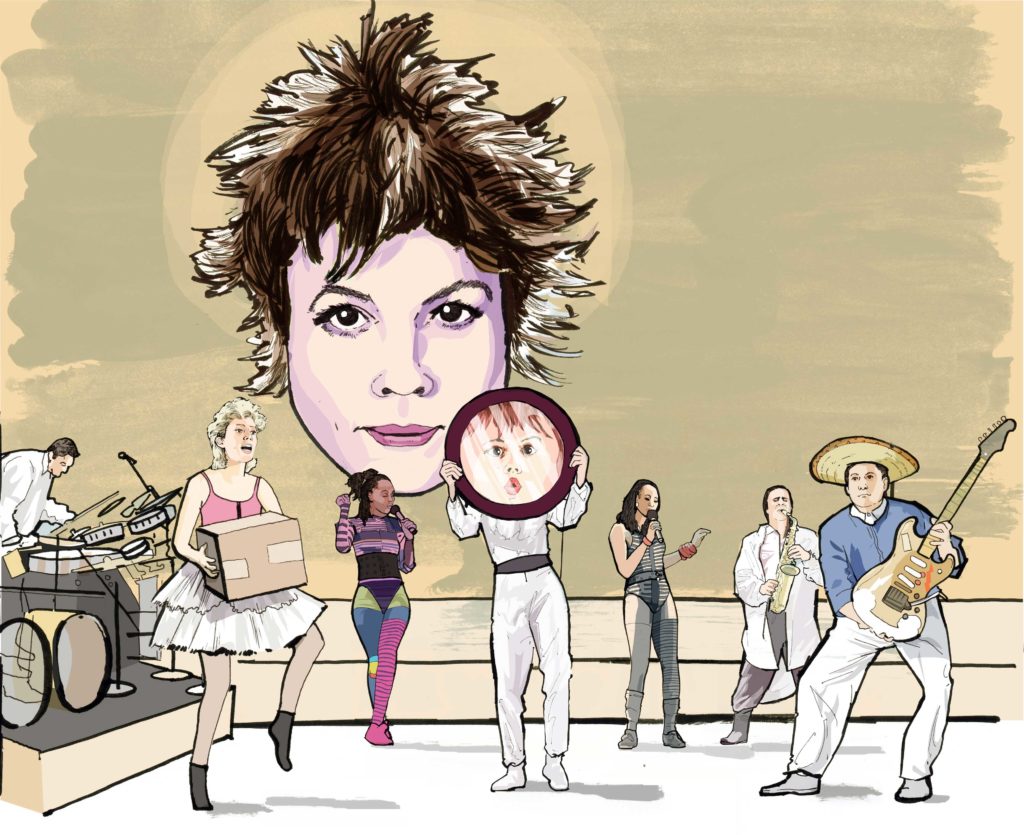
Since the ALOUD series is part of the Los Angeles Public Library, we’re always interested about literary influences. How did books or libraries help to shape you as an artist?
Anderson: Books are an essential part of my work—often appearing as the central subject matter of performances, songs, and visual work. The Bible, Moby Dick, Crime and Punishment, The Tibetan Book of the Dead—have all been jumping off places for my work.
Learn more about the following events below, or tune-in to the livestream on April 19!
Thursday, April 19, 7:30 PM
All The Things I Lost in the Flood
Laurie Anderson
In conversation with Maggie Nelson
Reservations: lfla.org/aloud
Friday, April 20, 7:30 PM– SOLD OUT
All the Things I Lost in the Flood:
Laurie Anderson in Performance
The Wallis
Co-presented by ALOUD
Tickets: thewallis.org/anderson
